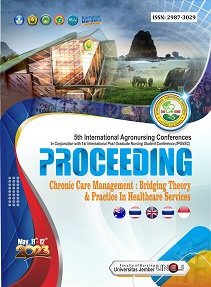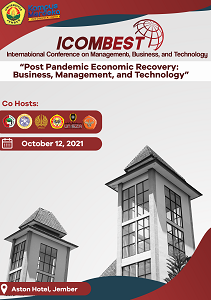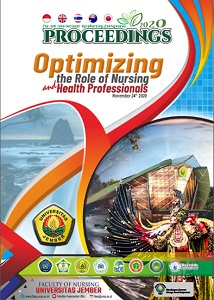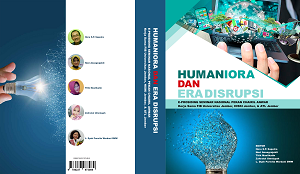SELF-EFFICACY OF POST-STROKE PATIENTS FOLLOWING THE FIRST STROKE ATTACK AT THE OUTPATIENT INSTALLATION
Abstract
Background: There are 33% of patients scoring low on self-efficacy regarding health-related behavioral changes. Self-efficacy plays a critical role in the rehabilitation process of post-stroke patients. Low self-efficacy can lead to a lack of motivation, causing patients to be less engaged in necessary treatments. This decreased adherence to rehabilitation protocols may worsen the patient's condition, resulting in prolonged physical limitations. Methods: This study was a descriptive study using a survey method. The sample consisted of 44 respondents, with sampling using purposive sampling. The research instrument used was the Stroke Self-Efficacy Questionnaire (SSEQ) which contains 13 statement items. Each statement item uses a Likert scale of 0-3. The interpretation of the SSEQ questionnaire is 0-13 = low self-efficacy, 14-26 = moderate self-efficacy, 27-39 = high self-efficacy. This study uses descriptive analysis. Results: Most respondents felt very confident in the self-efficacy component in the activity measurement and self-management items. Most post-stroke patients had high self-efficacy scores (70.5%). While other post-stroke patients had moderate (22.7%) and low (6.8%) self-efficacy. Conclusion: Most respondents felt very confident for each component in the activity and self-management items on self-efficacy. Most respondents had high self-efficacy scores.








